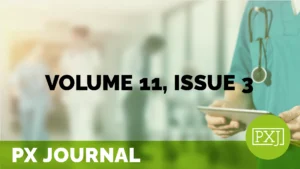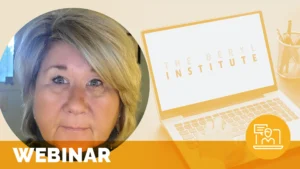Adapting Volunteer Services to Rapidly Changing Needs during COVID-19

Fernanda Clariana, MA | Volunteer Services Coordinator, Yale New Haven Hospital
The Volunteer Services Department of Yale New Haven Hospital found an innovative way to keep their patients feeling connected and relaxed when visitation was suspended. Using their hospital’s television system, their bedside music visitation program transitioned to a virtual platform, bringing patients a variety of relaxation resources including guided relaxation programming narrated by volunteers, therapy dog videos and Get Well cards from the community. Join this webinar to hear more about Yale New Haven Hospital’s Volunteer Services Department’s innovative approach to connecting with patients.
Related content
-
 Innovation & Technology
Innovation & TechnologyLaboratory Literacy: Surveying Lab Result Interpretations of a Local Patient Population
A patient’s independent interpretation of their medical laboratory data has become an unspoken prerequisite in the current age of medicine. In the outpatient setting, it is anecdotally commonplace for patients to receive their lab results before their physicians, resulting in patients often relying on self-interpretations of their results. This study analyzed the degree to which
Learn more -
 Patient Family & Community Engagement | Staff & Provider Engagement
Patient Family & Community Engagement | Staff & Provider EngagementThe Importance of Emotional Intelligence in Patient Relations (Part 1)
The Patient Relations department assesses and resolves complex patient issues related to customer service, billing, and patient care daily by researching errors and patient issues and finding the proper solution to satisfy the needs of the patient and their care partners. Individuals possessing a high emotional intelligence (EI) quotient can use their emotions as a
Learn more -
 Patient Family & Community Engagement
Patient Family & Community EngagementPatient, Family, and Health Professional Perspectives of How Families are Involved in Adult Inpatient Traumatic Brain Injury Rehabilitation
Objective: We aimed to answer the following research question: From the perspectives of patients, family members, and health professionals, how are families involved in the rehabilitation of adult patients with Traumatic Brain Injury at an inpatient Acquired Brain Injury service within an adult rehabilitation centre? Methods: We used an interpretive qualitative approach, from a constructivist view.
Learn more
